Welcome to my Galaxy! Initially a proof-of-concept, Galaxy ended up being the ultimate Behringer Ultracurve Pro replacement power supply!
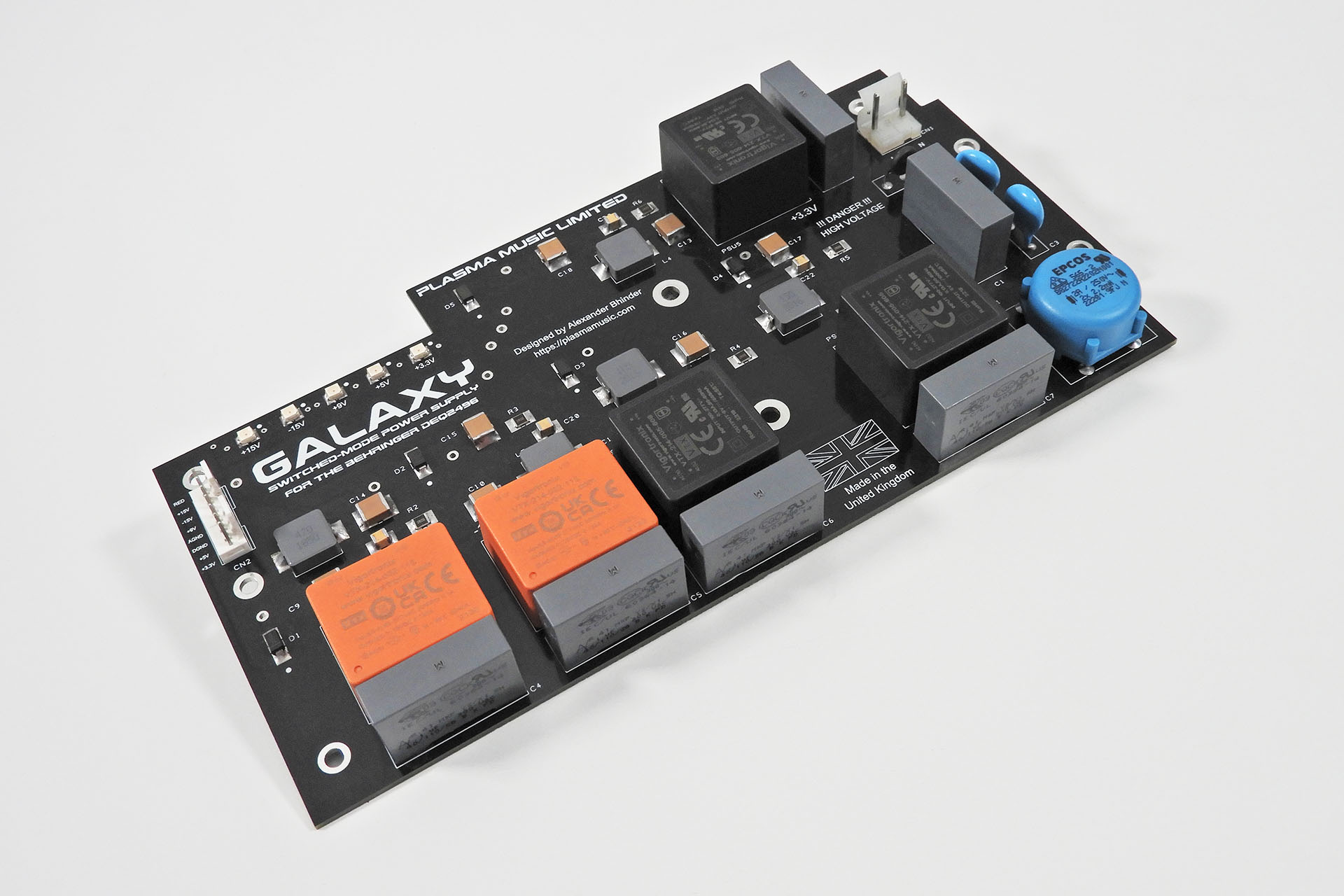
I’ve been a big fan of this processor since Behringer launched the 2U DSP8000 Ultracurve which soon evolved into the DSP8024 Ultracurve. It's no surprise therefore, that I'm currently using six Behringer DEQ2496 Ultracurve Pros in my studio. An excellent processor which in its current version, offers features and benefits such as
- Compact 1U format
- Ergonomic front-panel layout
- Intuitive GUI on a large display
- Simultaneous multi-function processing
- Huge audio connection options, both analogue and digital
- Professional interfaces including Word Clock
- Excellent audio quality
- Analogue true bypass
- Internal memory
- MIDI to allow remote control and saving of internal memory to a computer
- Amazingly cost-effective solution
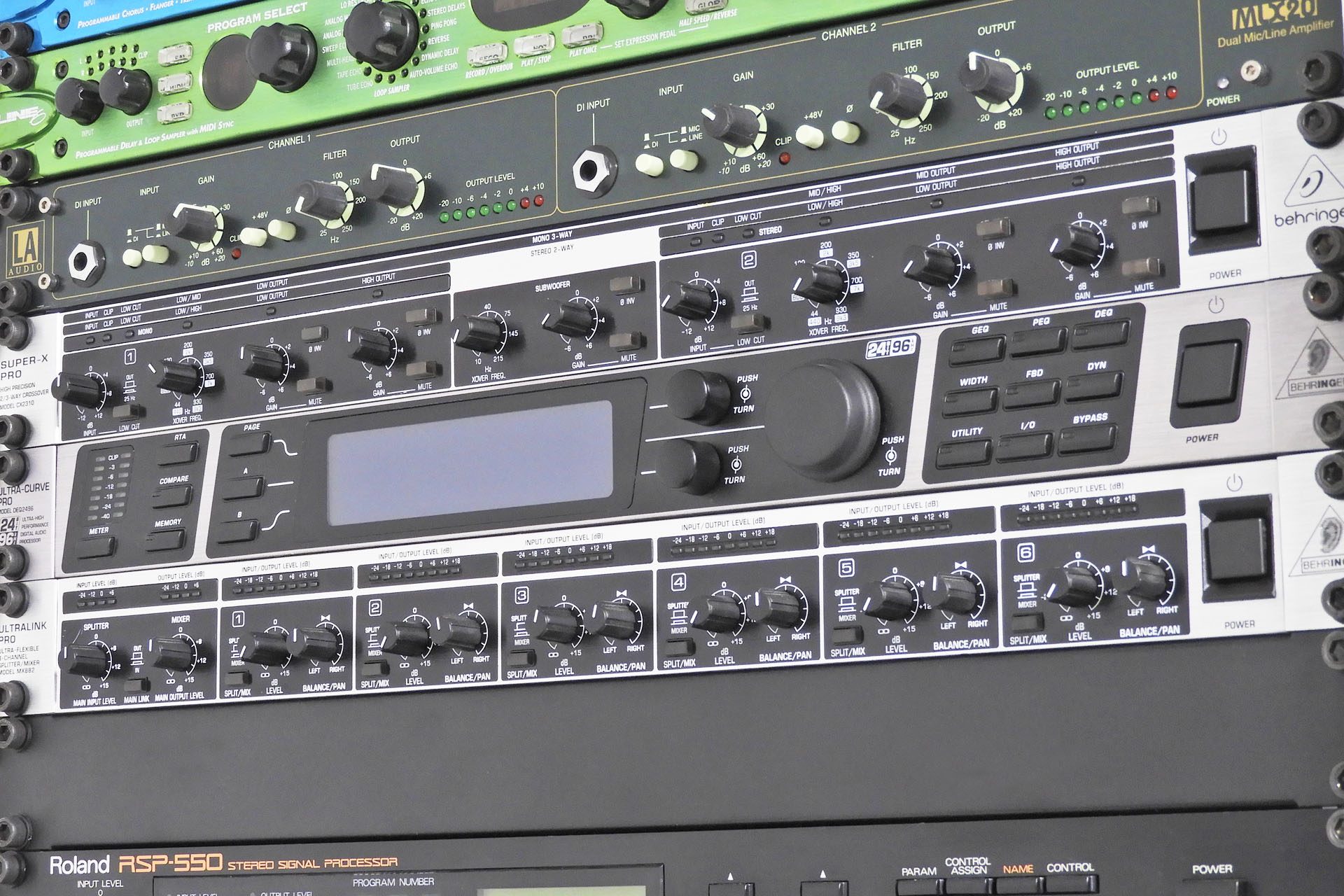
The Behringer DEQ2496 joins a selected few processors that can be found in recording studios, broadcast studios, night clubs, theatres, in the filed, audiophile set-ups and home theatre systems. That in itself is a big deal.
So why are we here? What’s wrong with the DEQ2496?
Well, nothing really but despite its huge feature list, the fact that at the time of writing, it’s still in production and retails for a very acceptable price, it does have one or two snaggy annoyances.
Made in the Far East, quality control used to be and sometimes still is an issue. Problems with internal cables for example, have been well documented. In fact, I’ve repaired a lot of Ultacurves over the years and indeed many have had simple inter-board connection issues.
Great but that’s still not why we’re here!
With thousands of Ultracurves across the world now getting quite old, many DEQ2496 power supplies are starting to fail. Symptoms are various ranging from erratic or unpredictable behaviour, to the DEQ2496 simply not switching on.
Yeah but hang on a second... is the power supply in the Ultracurve Pro actually a Behringer power supply?
Good question! Labelled as a Behringer Model PSU2496, it would appear that it's actually made by Eton, a well respected manufacturer of switched-mode power supplies and is from the ET166 range.
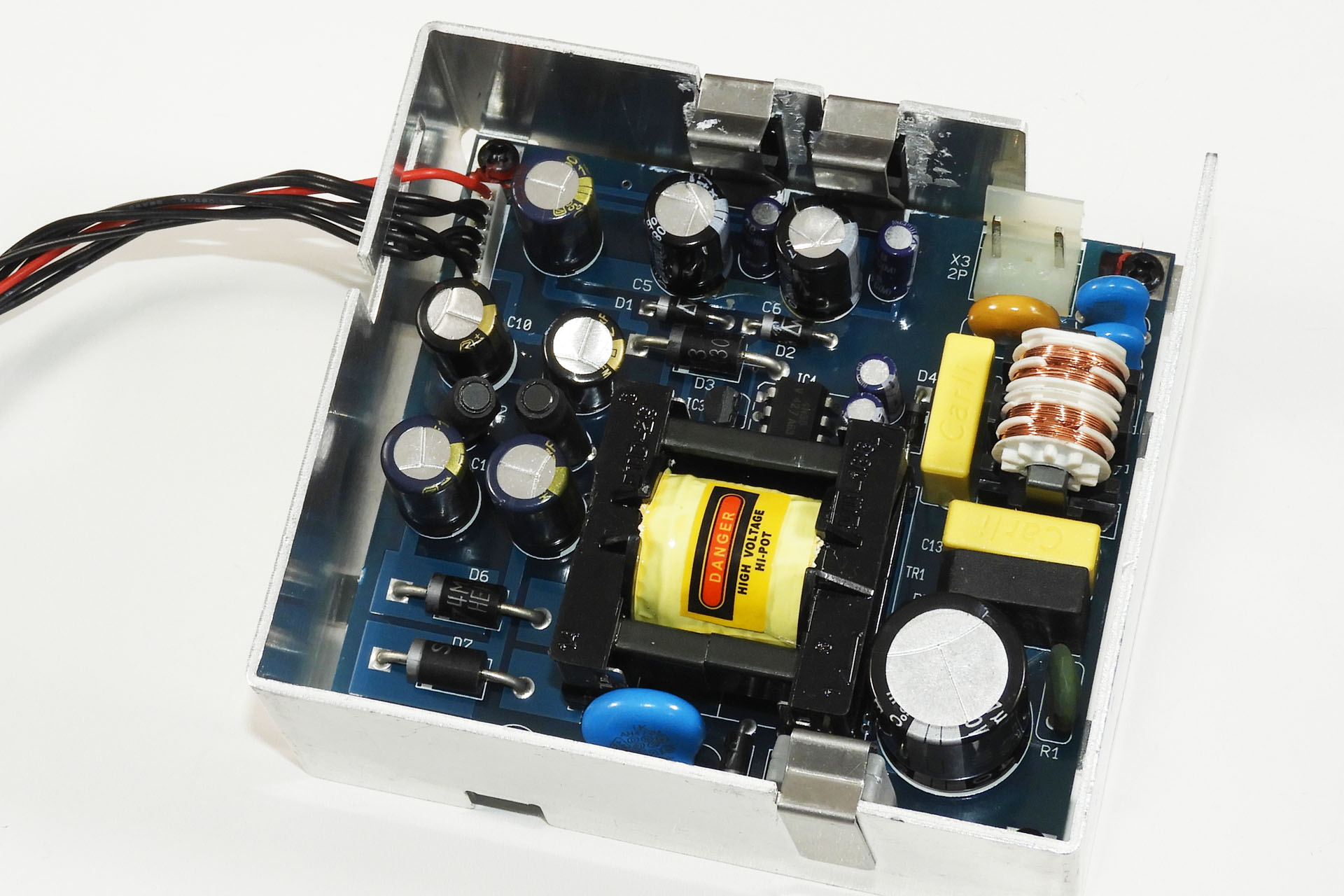
The PSU2496 is a very cleverly designed little power supply. Labelled as a switched-mode power supply (SMPS), it's actually a hybrid. The voltage for the +/-15V analogue supplies for example, comes off a pair of 78 / 79 series regulators. The input to those regulators however, does come from a very fast-switching back-end. It's a trick I've used myself, to make guitar pedal power supplies and it works really quite well. Using LDO regulators on the back-end of a SMPS is an excellent way to reduce EMC and ripple but is expensive for manufacturers to implement.
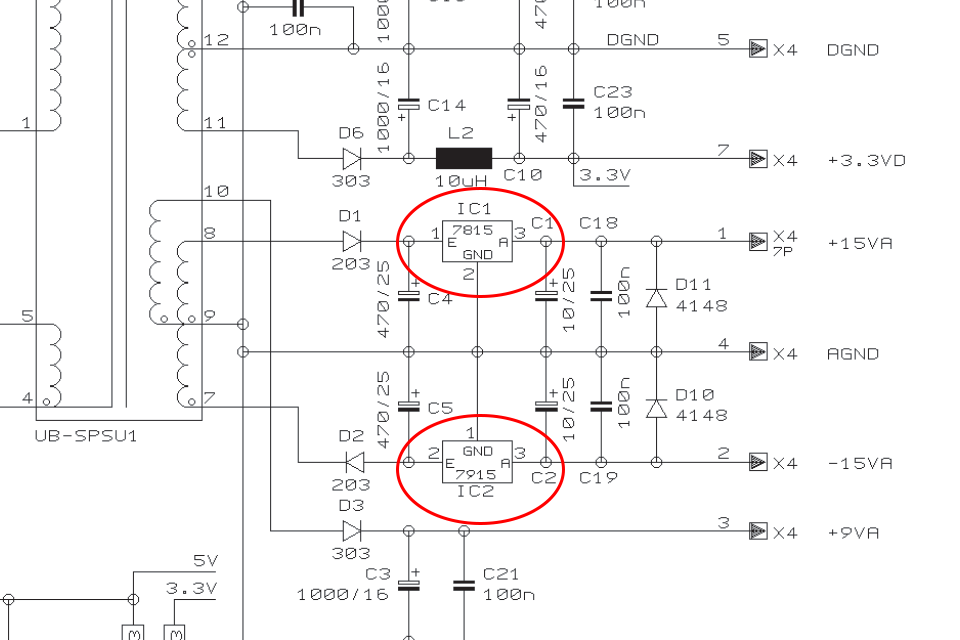
The PSU2496 is packed with a bunch of similarly neat little features including proper capacitive ground / earth decoupling which I have incorporated into the Galaxy design.
From my experience, these things don't fail because of poor design, sub-standard components or build quality. They fail because they're old. A lot of heat is generated by the power supply and devices will eventually succumb to thermal stress. It's that simple. When it comes to current provision, it's difficult to tell what margins exist between the PSU2496 rated currents and what the DEQ2496 pulls off each supply. One could argue that the reason the PSU2496 runs so hot is because there isn't much margin at all and that the power supply is actually running near to the edge of its limits.
In the event of PSU failure, swapping out the through-hole electrolytic capacitors for high-temperature rated, low ESD equivalents, can help but sometimes other components fail and fault-finding a switched-mode power supply can be quite challenging, even with the appropriate technical literature. The wire-wound components are of particular concern as it's virtually impossible to acquire these as spare parts.
Initially a proof-of-concept, my Behringer Ultracurve Pro replacement power supply wasn’t intended to become a commercial product. Once it was up and running, installed in two of my own Ultracurves and having worked flawlessly for a couple of months, I mentioned the project to some friends and customers who I knew were DEQ2496 owners. Within a couple of weeks, three customers had brought me their Ultracurves asking if I could install my Behringer Ultracurve Pro replacement power supply. That’s when things started to get serious and Galaxy was born.
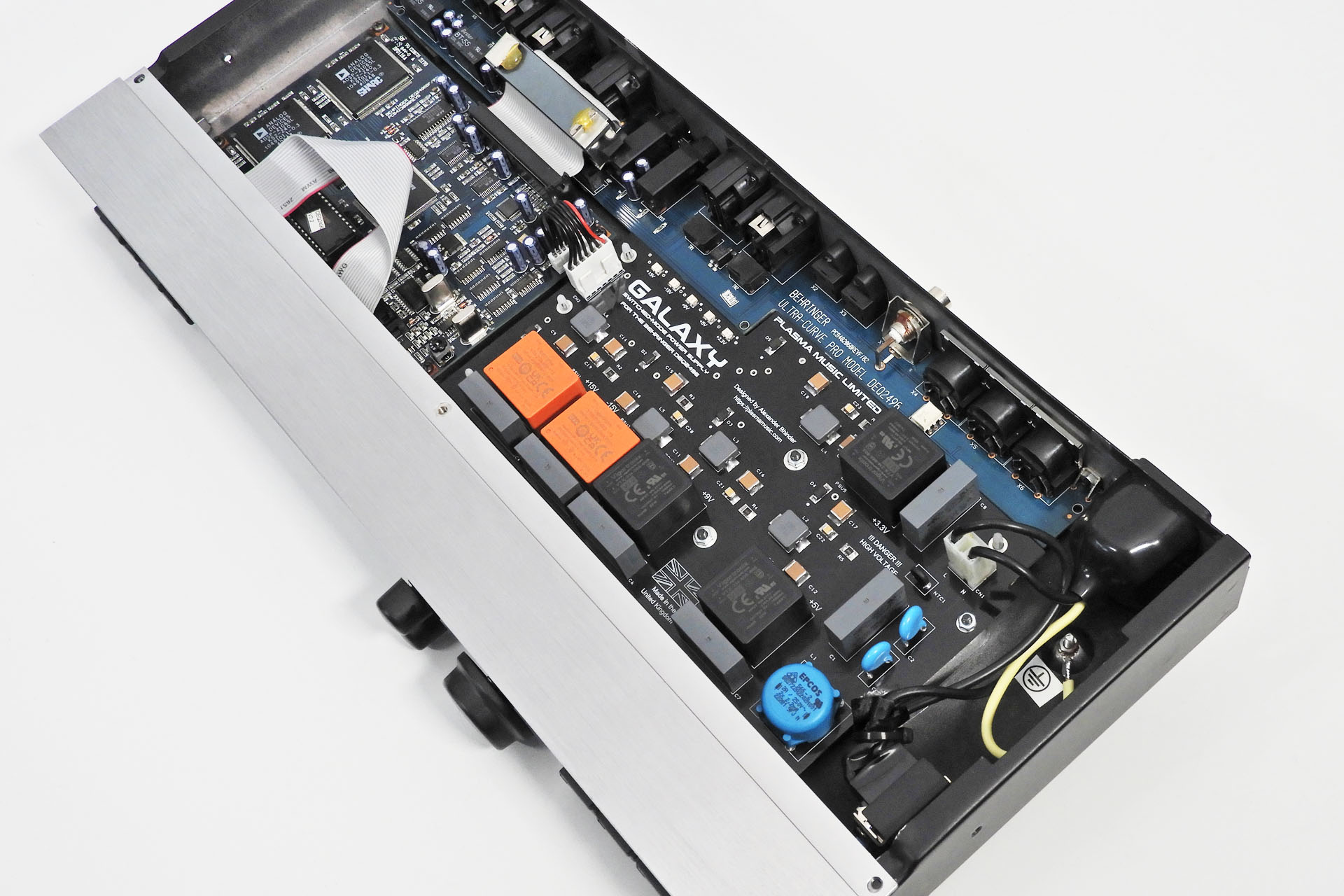
Had I designed a power supply similar to the Behringer PSU2496 (or Eton ET166), I don't think I'd have come up with anything much better, to be honest. As I've already commented, it's actually a good power supply! Anyway, fortunately there's enough room in the DEQ2496 case to develop something a little special and what this awesome processor really deserves.
Galaxy is also a SMPS but with several differences to the Behringer PSU2496.
Unlike the PSU2496 with all its interdependencies, Galaxy offers fully independent voltage supplies, with only pre-filtered mains, common to all.
Using low-leakage AC / DC converters which are both over-voltage and over-current protected, the heat generated is much, much lower than the original PSU2496. During tests, I measured the temperatures of the converters an hour after power-up and with the top-case on. The hottest measured only 38°C. To put things into perspective, one of the processors was about 42°C. It's quite reassuring that Galaxy is running cool and not significantly contributing to the heat build-up inside the Ultracurve as was its predecessor.
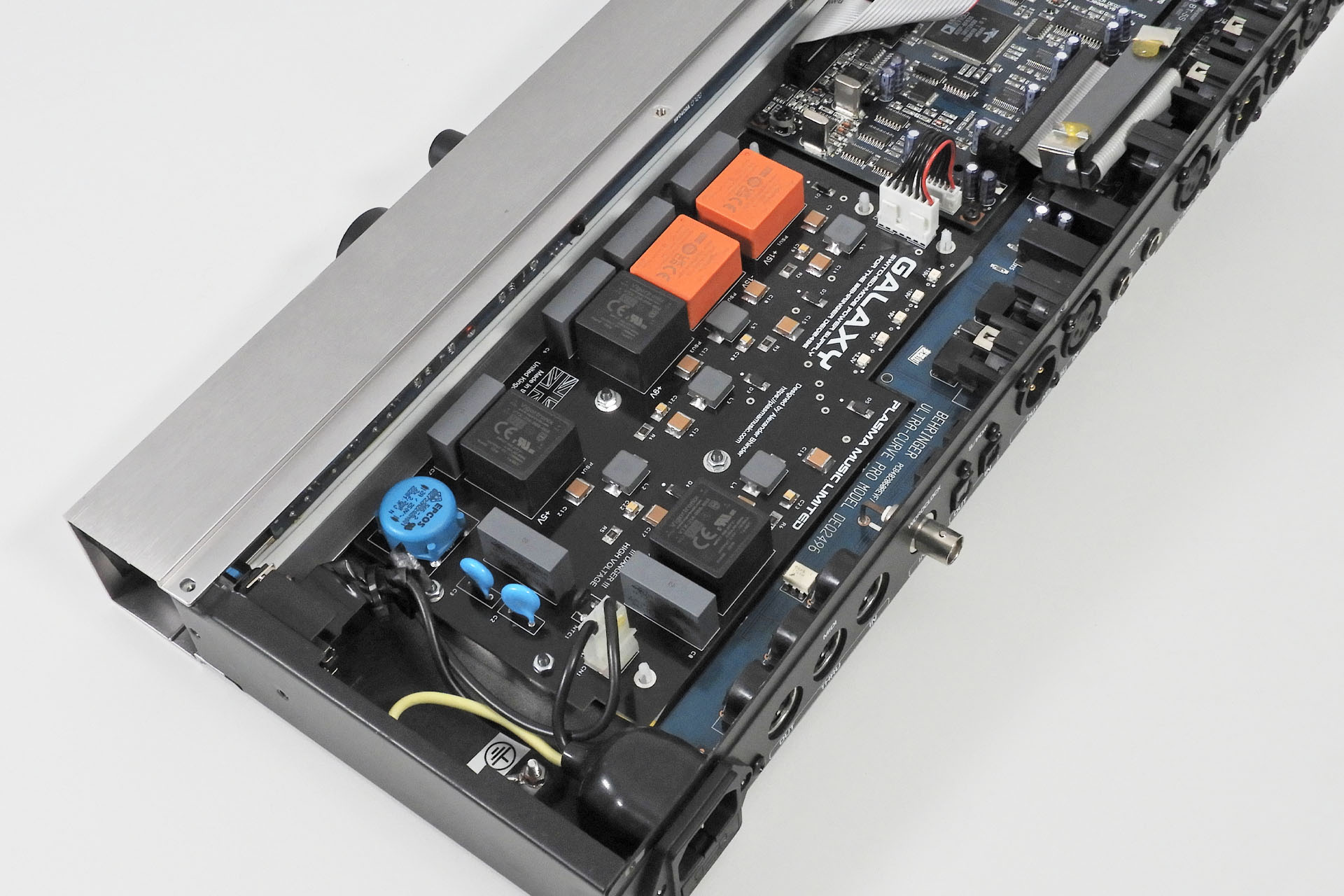
Switched-mode power supplies shouldn't generate hum like linear power supplies. Due to the nature of operation however, they can / do generate very high-frequency noise. When designing switched-mode power supplies intended for use in audio electronics, comprehensive noise filtering is paramount. To that end, Galaxy has precision-designed filters on the back-end of each AC / DC converter, including those that supply 5V and 3.3V for the digital side of things (something you don't see too often).
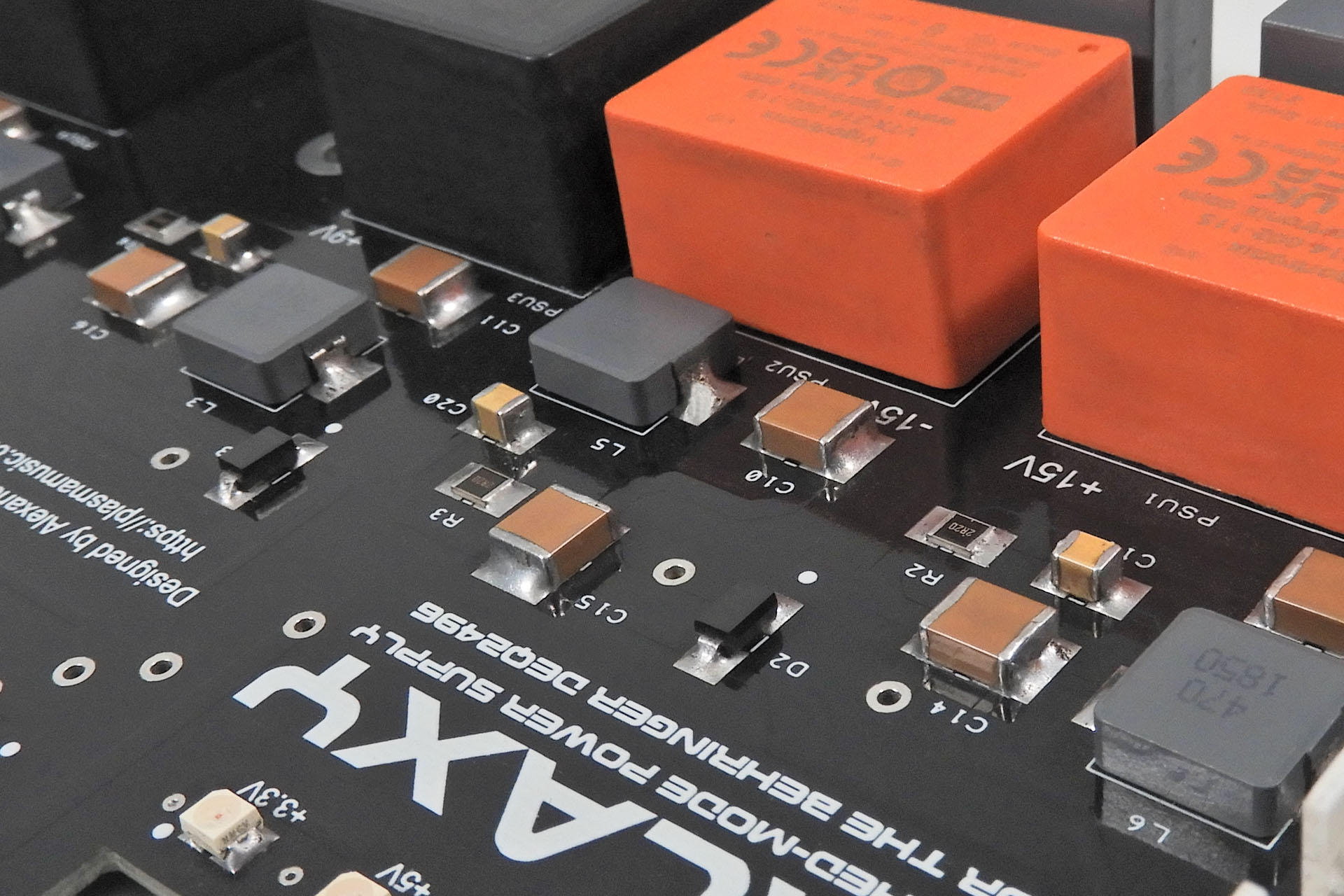
Each supply also has its own status LED giving a simple visual indication that respective supply lines are working.
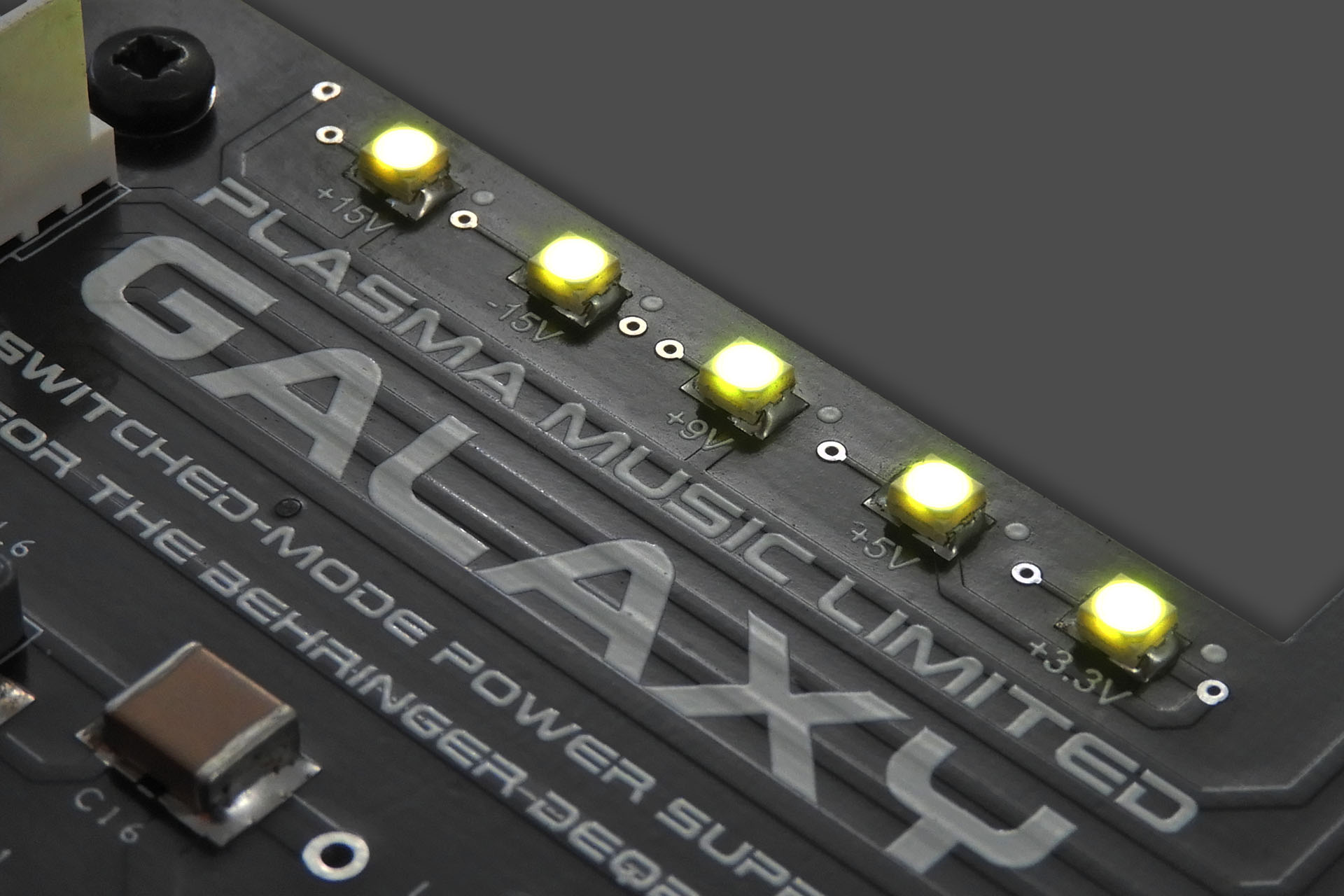
Voltages are directed to a rather over-sized 2.54mm (0.1 inch) pitch Molex KK 259 header and Galaxy is supplied with a connection cable to go to the Behringer DEQ2496 main-board.
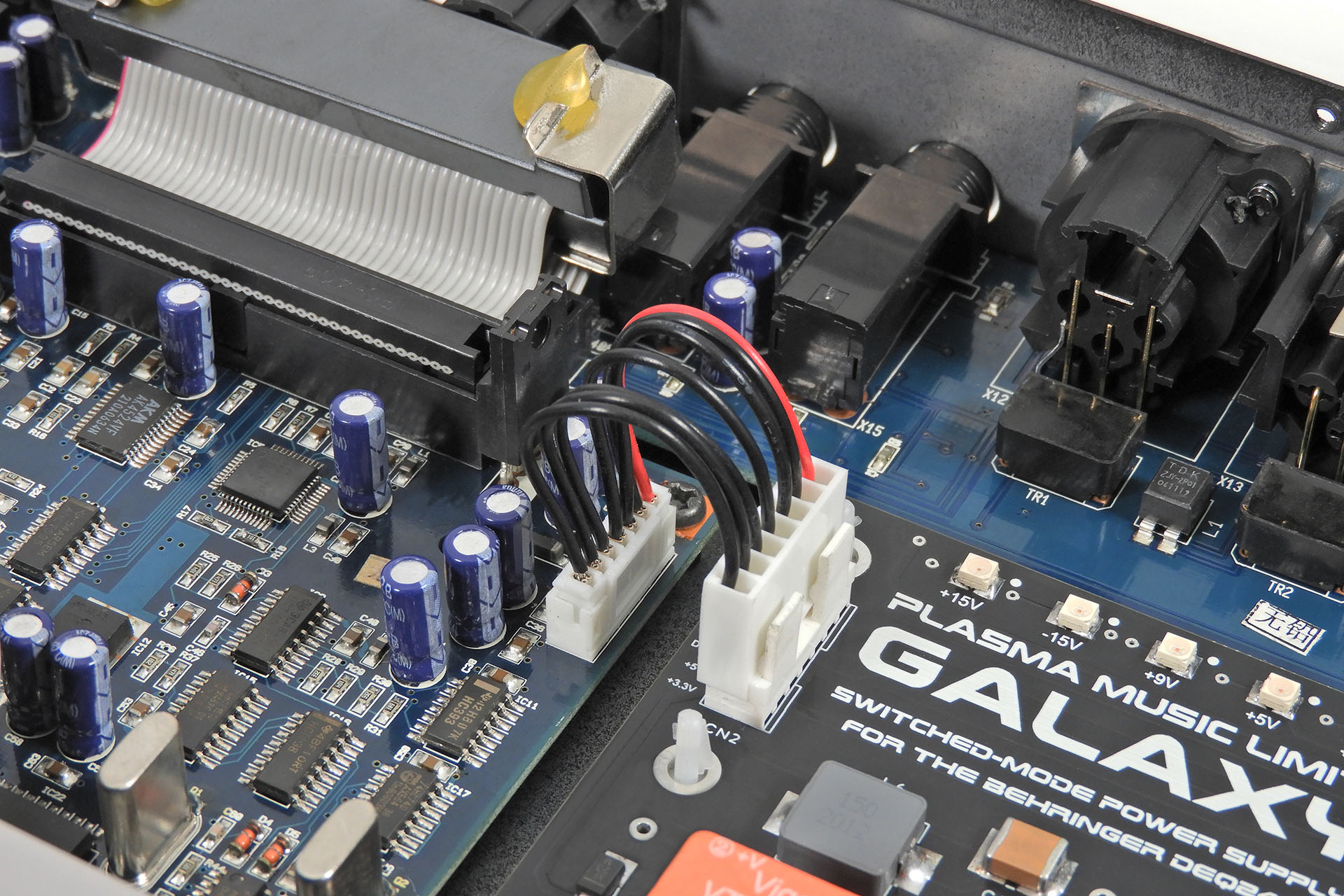
Like all my modular switched-mode power supplies, there’s very little exposed mains voltage on the top-side of the PCB.
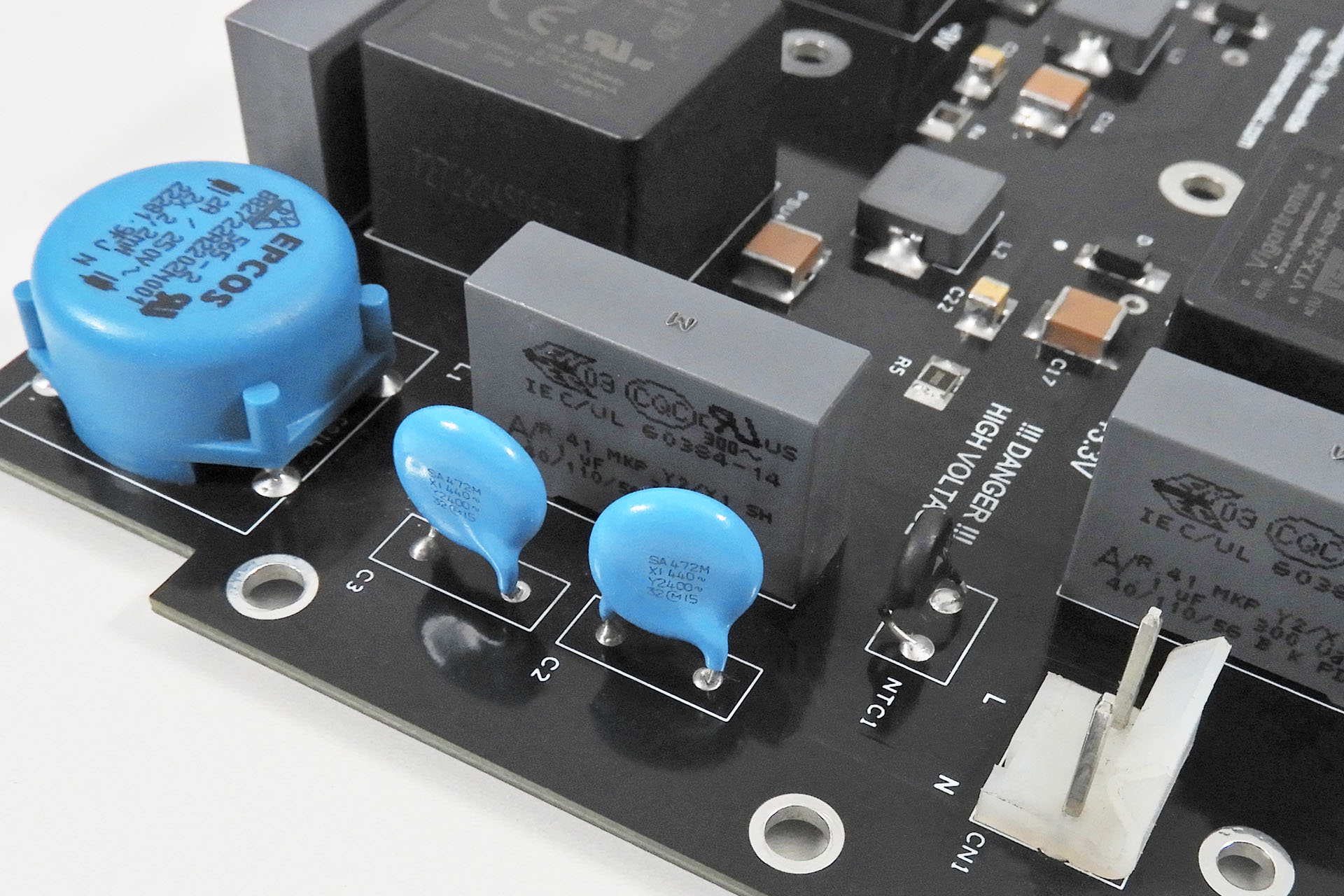
In fact, safety always comes first so again in common with all my modular switched-mode power supply designs, Galaxy features a bleed resistor across the already fuse protected mains supply.
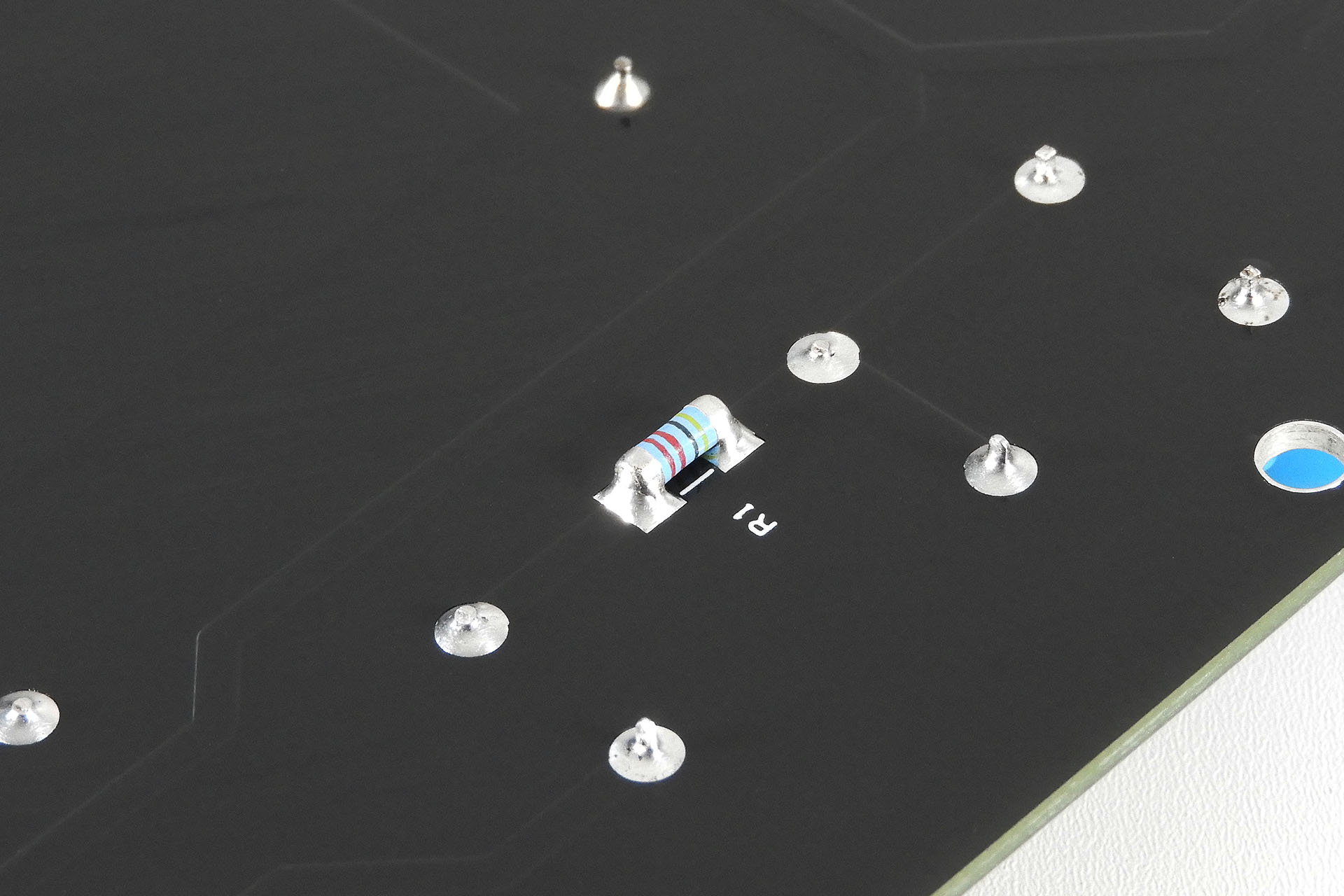
With safety still in mind, Galaxy is secured to the inside of the DEQ2496 chassis using the same mounting points as the original power supply. Stand-offs around the two connectors, reinforce the PCB and prevent the PCB from bending when connecting the mains supply from the switch and the connector from Galaxy to the main processor-board.

After measuring the current consumption of each voltage line, I wanted my Behringer replacement power supply for the DEQ2496 to have as much headroom as possible. One of my initial design objectives therefore, was that each voltage supply of Galaxy should be able to offer at least twice the current that is required. Taking advantage of the space available in the DEQ2496 case, I was able to fulfil that objective. Not stressed and with ample headroom, this is one reason why Galaxy runs so cool; the power supply can actually deliver considerably more power than is needed.
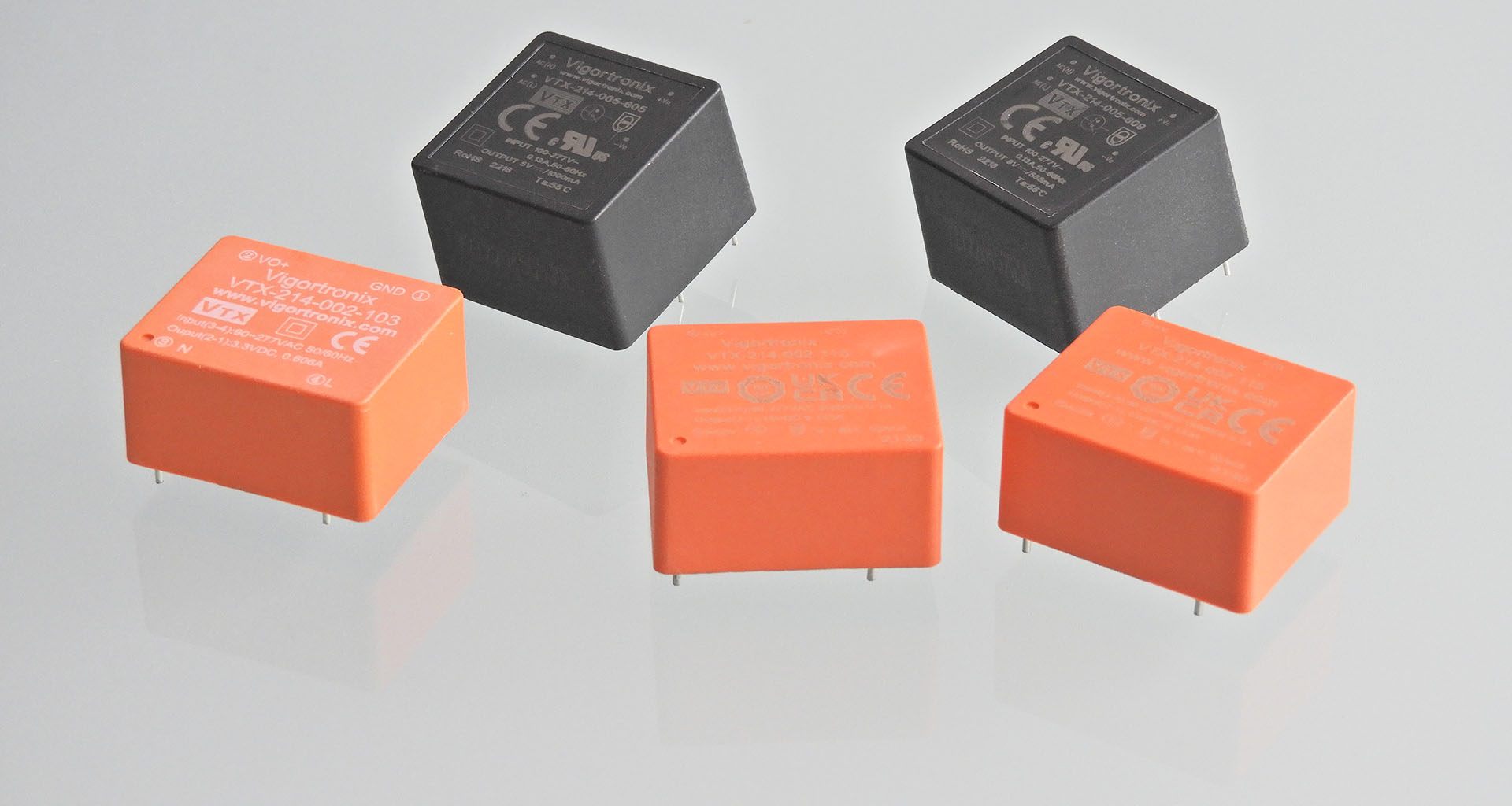
I'm so sorry to have to say this but one potentially big issue with Far Eastern manufactured equipment that's powered from mains, is the lack of standardisation, compliancy and safety of the power inlet. Quite frankly, it's all over the place. Live and neutral are often swapped around and it's very common for the power switch to be connected to the neutral line. This is really frustrating when it comes to confirming which line the fuse is in, for example.
"So what's the big deal?" I hear you ask.
Hey, don't take my word for it. The following was taken from some PAT testing guidance I found on line here.
Under normal circumstances, the current will go to the appliance down the live wire first passing through the plug fuse (and any internal fuse). If the appliance has a fault and draws too much current, the fuse would detect this and blow. If the live and neutral wires are crossed over, the current passes down the neutral first. The result is that safety could be compromised if the appliance has a fault.
It's paramount that your Ultacurve is fully earthed, whether you're using the original power supply or Galaxy. This is not just for safety but is required to remove parasitic AC components from the outputs of the switched-mode power supply.
I therefore include a couple of bits with Galaxy like an insulating boot that fits over the back of the IEC socket. I also recommend that while the box is open, you check the input mains polarity and correct it if it's wrong.
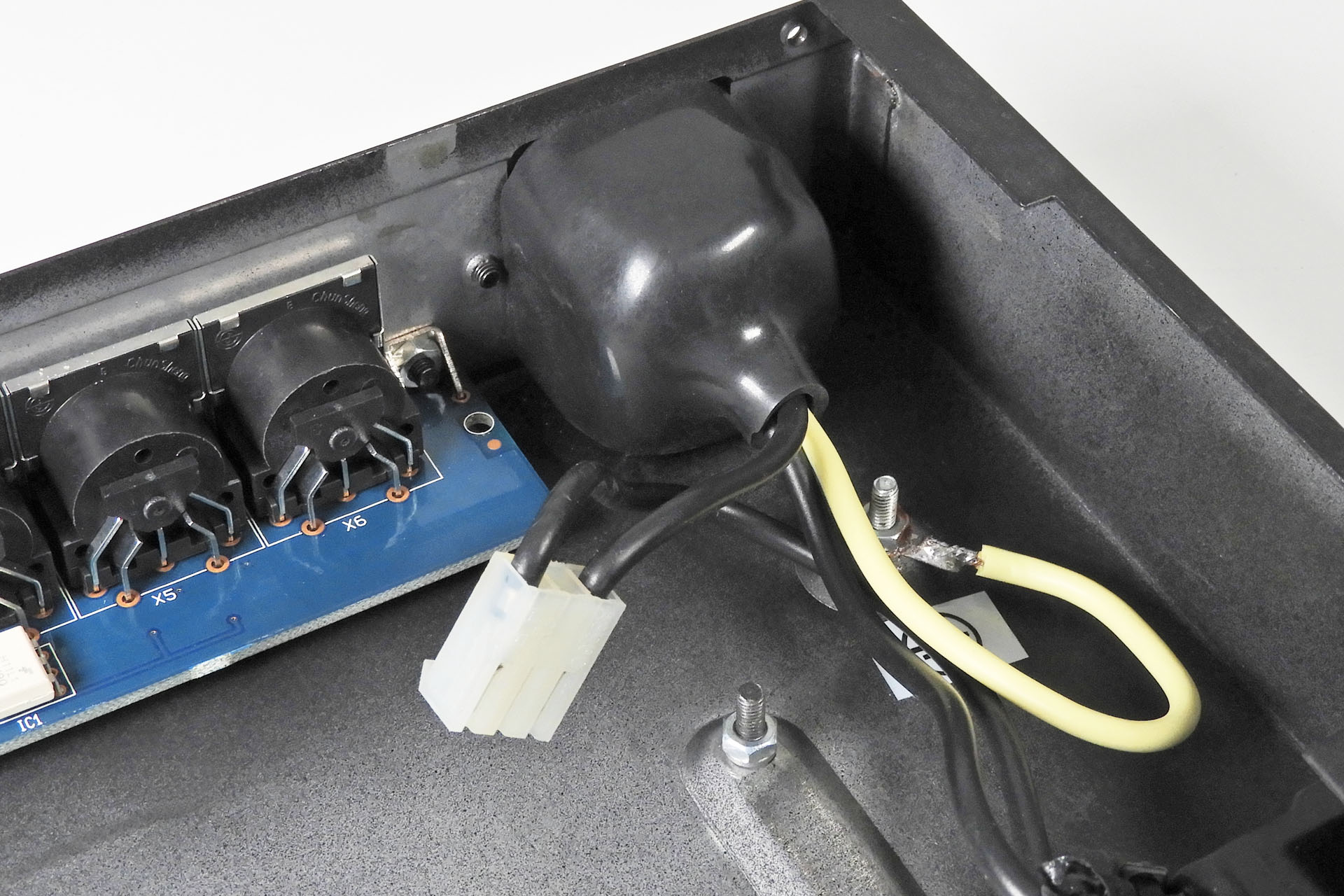
Behringer has a well established reputation for making affordable audio gear. It doesn't always mean however, that quality needs to be compromised. The DEQ2496 Ultracurve Pro epitomises that fact. Competitively priced, it's difficult to find something similar. My Galaxy replacement power supply for the DEQ2496 will ensure that at least the power side of things will run smoothly and last for a very long time. 🙂
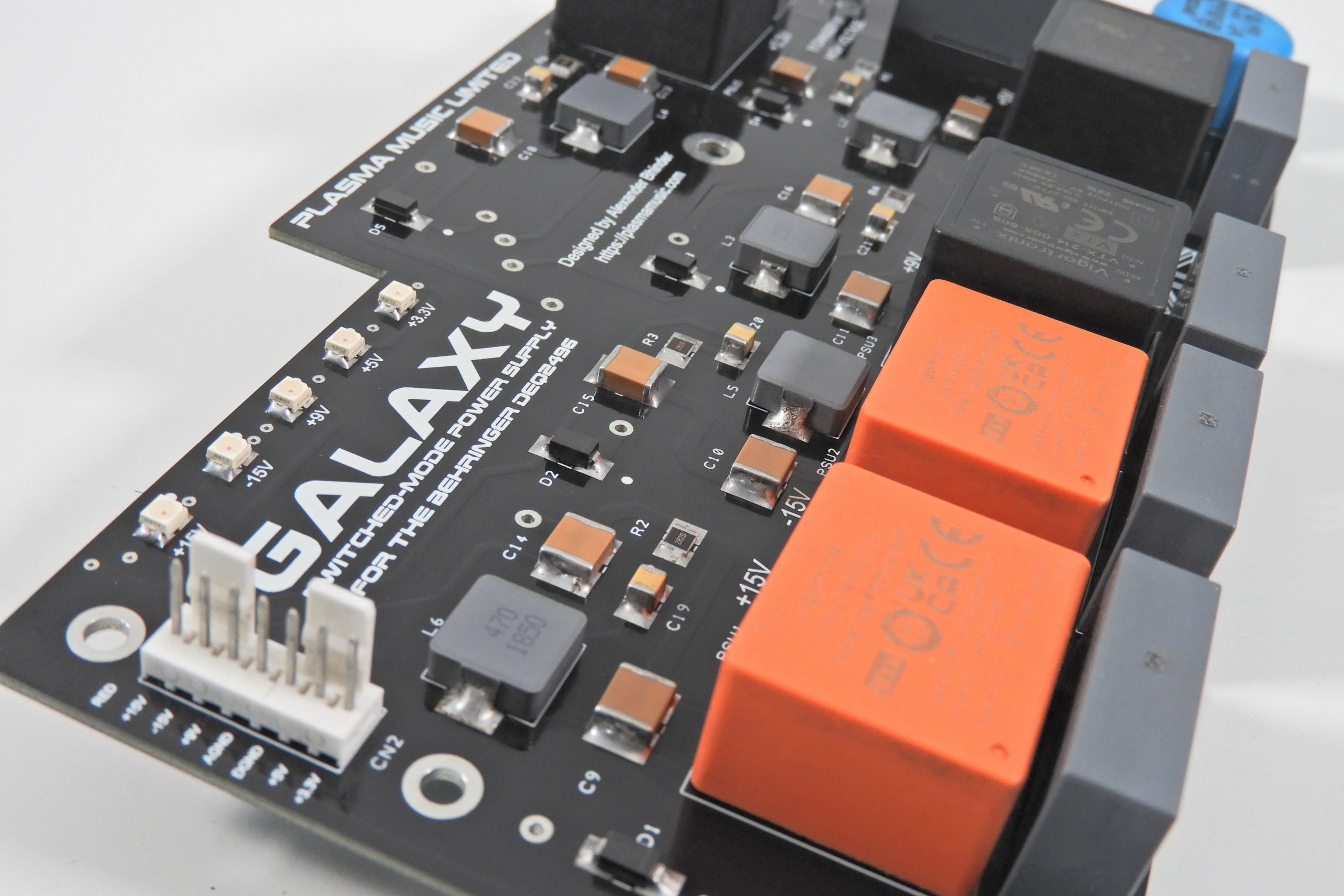
Installing Galaxy is amazingly straight-forward for anyone who has experience with opening up 19-inch rack gear. Personally, I would check the polarity of the mains live / neutral, correct them if they're wrong and check that the ON / OFF switch is switching live and not neutral. Other than that, there's no desoldering / soldering, just four screws to remove, four replacement (longer) screws to fit, a couple of connectors to pull off the old PSU and main-board and then connect Galaxy.
ALLOW ME TO REPEAT MYSELF ONE MORE TIME…
Galaxy was a proof-of-concept and was designed to address two vulnerabilities in the UltraCurve Mk III; the power supply and the connection between the power supply and the main-board.
Yes, Galaxy costs more than buying a new UltarCurve but it would be interesting to know how much the UltraCurve Mk III would have cost, if Behringer had used a similar design in the first place.
Yes, you can buy a new UltraCurve every few years, when the stock power supply packs up but Galaxy offers you the option to keep your original unit running for many more years to come.
I understand that Galaxy may not be for everyone and I wish I could make it cheaper. If you’re familiar with my other power supplies, you’ll note that they all cost about the same and that there is no correlation between the cost of making a specific power supply and the respective unit it is designed to go into.
UPDATE - 23rd July 2023
I’ve already mentioned that my Galaxy replacement power supply for the Behringer DEQ2496 was basically a proof-of-concept project so you can imagine my surprise when orders quickly began to match those of my other power supplies.
All of my power supplies are soak tested for twenty-four hours, prior to shipping but I’ve never been happy that I’ve only been able test them ‘off load’ which means that the respective PSUs haven't been subjected to a current demand, as they would be in real life.
On the other hand, it’s quite impractical to have original machines on which to test power supplies like Aurora for the Roland MKS-80, Supernova for the Roland Juno-106 and Guy Wilkinson’s P0004 for the Roland Super-JX and so on.
Well, that has all changed as my Galaxy project encouraged me to design a small test rig which now allows me test all of my power supplies, with a load.
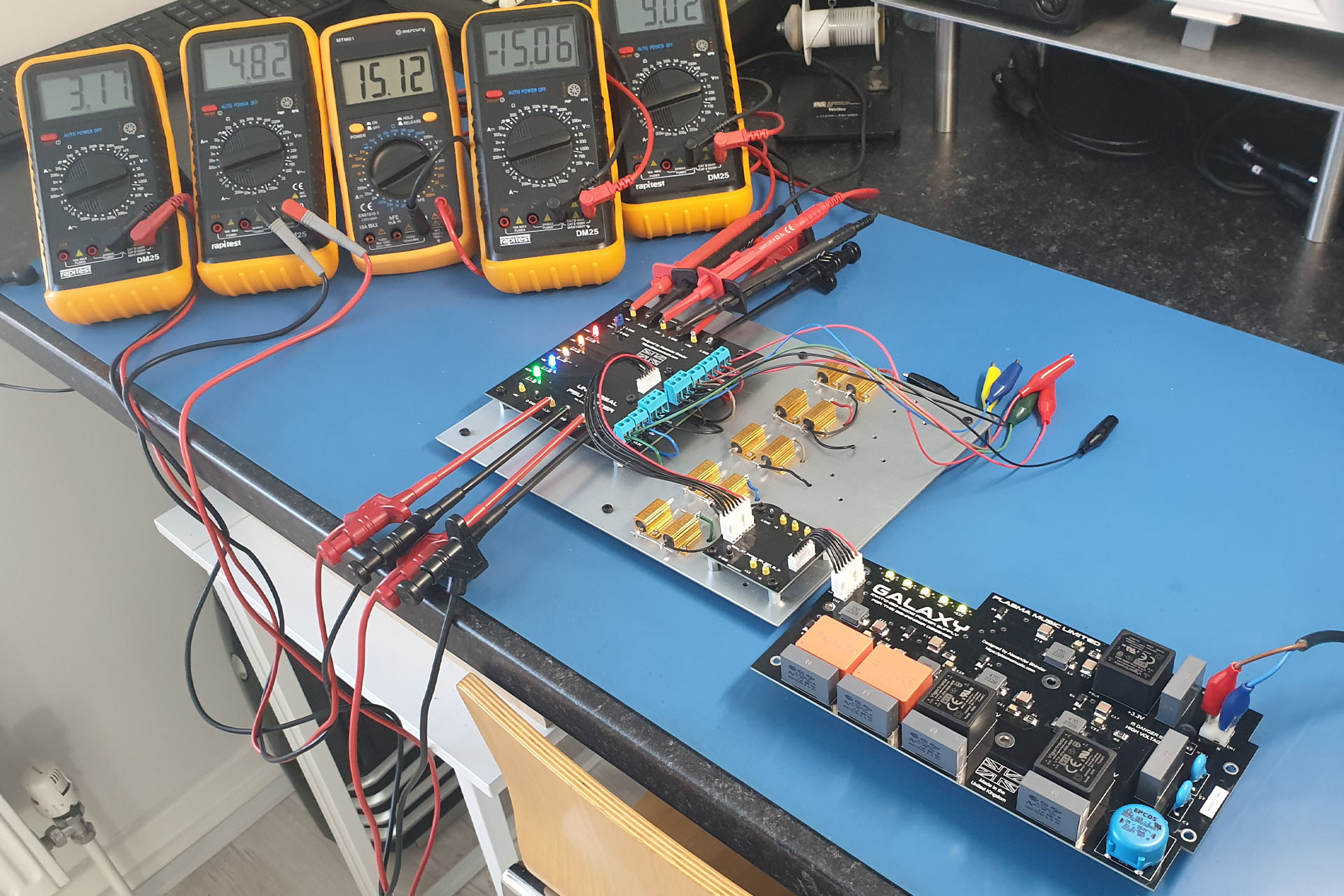
After the basic voltage test, every Galaxy then spends twenty-four hours in my test Behringer DEQ2496 Ultracurve Pro, before it's shipped to the customer.
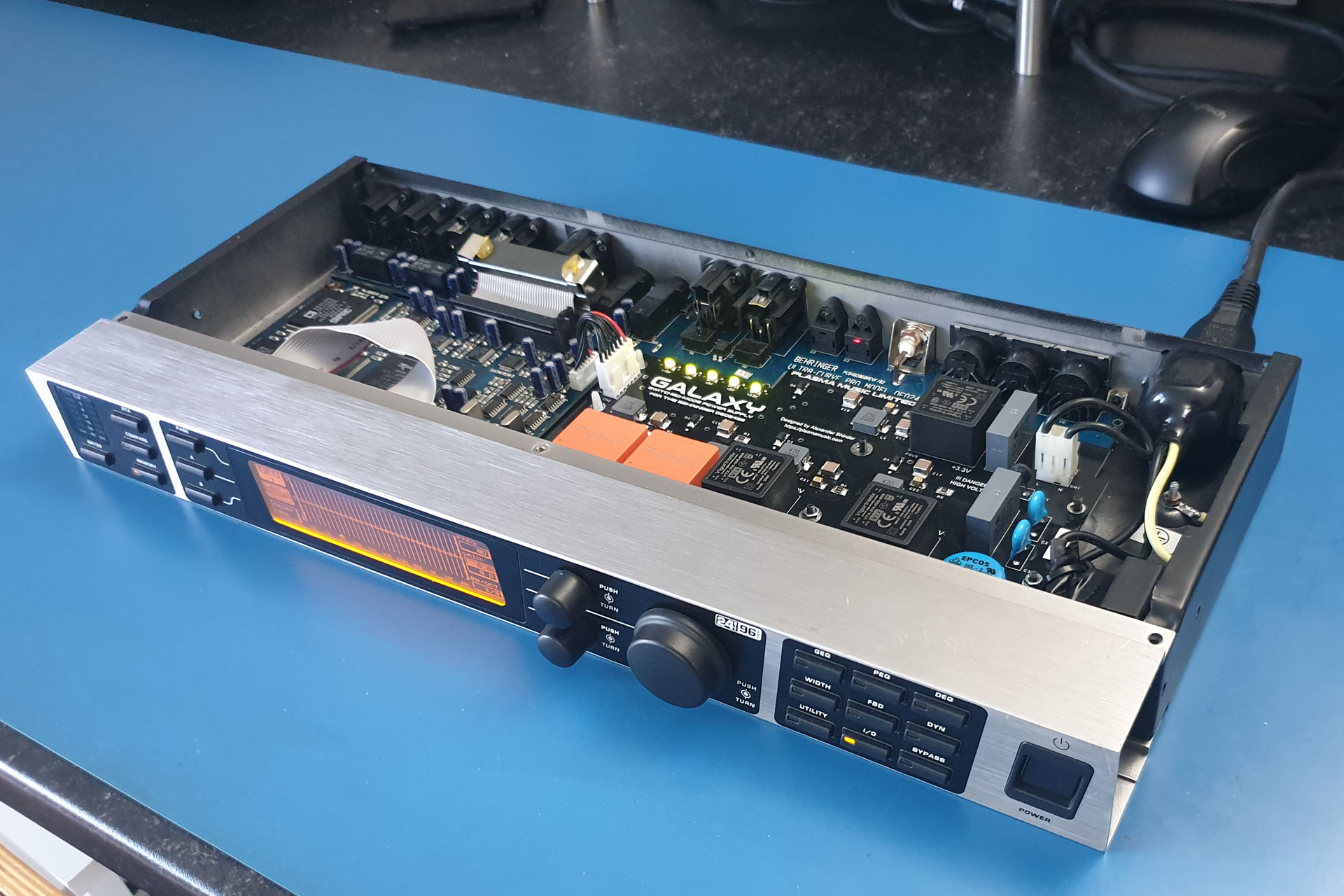
UPDATE - 25th February 2025
I always welcome customer feedback even if it's not what I might want to hear. After a lovely email earlier today, I feel obliged to post some information which you should consider prior to purchasing Galaxy.
Galaxy was a proof-of-concept project with the intention to deliver a replacement power supply which would keep older Behringer DEQ2496s going for another who knows how many decades. In newer revisions of the DEQ2496 however, Behringer seems to have changed the connector between the power supply and the main board! 😡

The customer who reported this was able to adapt the connector supplied with Galaxy. so as to work. I do NOT however, expect everyone to be able to do this and neither is it financially viable for me to offer the cable that is supplied with Galaxy in several different configurations.
Since Galaxy was designed for older DEQ2496s, I would request that you only buy Galaxy if your Ultracurve is an older unit. How old? I don't honestly know.
UPDATE - 29th January 2026
A Galaxy customer in Germany sent me a most lovely email today. He agreed that I could publish it so here it is...
Ich grüße Sie,
Hallo Herr Bhinder
Als ich im Internet nach einem neuen Netzteil für meinen DEQ2496 suchte, weil mein Gerät sich überhitzte und ich das Teil nur noch ohne Deckel betreiben konnte, fiel mir Ihre Internetseite mit ihrem Angebot auf.
Nach langem Überlegen, habe ich mich doch entschieden ihr Netzteil zu kaufen auch wenn es den Kauf eines neuen Gerätes im Vergleich angebracht gewesen wäre…
Durch meinen Bezug zur Musik habe ich aber festgestellt man kauft meistens zweimal, bevor man merkt, dass es einmal richtig gekauft besser gewesen wäre.
Jetzt denke ich, dass ich das richtig gemacht habe und das richtige Powerteil gekauft habe und meine Kinder mit der Musikanlage, die ich mir aufgebaut habe, noch viel Spaß haben werden.
Der Klang hat sich mit dem neuen Powerteil schon zum Positiven verändert und stellt eine deutliche Verbesserung für meinen Lautsprecher dar. Da ich ein Voll Hornsystem habe, hat sich der Druck erhöht, obwohl ich die Lautstärke nicht erhöht hatte. Somit kann ich mich nur bei Ihnen bedanken für eine solche Innovation des Gerätes.
Eine Verzögerung habe ich nicht bemerkt, da ich weiß, dass für solche Arbeiten Zeit benötigt wird. Für meinen Lautsprecher hatte ich 2 Jahre gebraucht bis das Gerät so wurde wie es sein sollte.
Here's the English translation:
Hello,
Dear Mr Bhinder,
When I was searching online for a new power supply for my DEQ2496 because mine was overheating and I could only operate it without the cover, I came across your website and your offer.
After much deliberation, I decided to buy your power supply even though it would have been more appropriate to buy a new DEQ2496...
However, my experience within the hi-fi market, has taught me that you usually buy twice before you realise that it would have been better to buy the right thing the first time.
I am now convinced that buying your power supply was the right decision and now my children can continue to enjoy the music system I have built for them.
The sound has already changed for the better with the new power supply unit and represents a significant improvement for my loudspeaker. Since I have a full horn system, the pressure has increased even though I haven't turned up the volume. So I can only thank you for such an innovative device.
I did not notice any delay, as I know that such work takes time. It took me two years to get my loudspeaker to work as it should.
 I'm deeply concerned about the environment and the exploitation of labour and so I always use local manufacturers in preference to the Far East, with the following in mind:
I'm deeply concerned about the environment and the exploitation of labour and so I always use local manufacturers in preference to the Far East, with the following in mind:
- I can be confident that workers are treated fairly and earn a proper wage.
- I can be confident of the standard of quality of each item that is delivered to me.
- Communication is important and using local manufacturers, all correspondence is quick and understandable.
- I believe in supporting the local economy.
- I can be confident that the disposal of manufacturing waste is managed properly and in accordance with national and EU law.
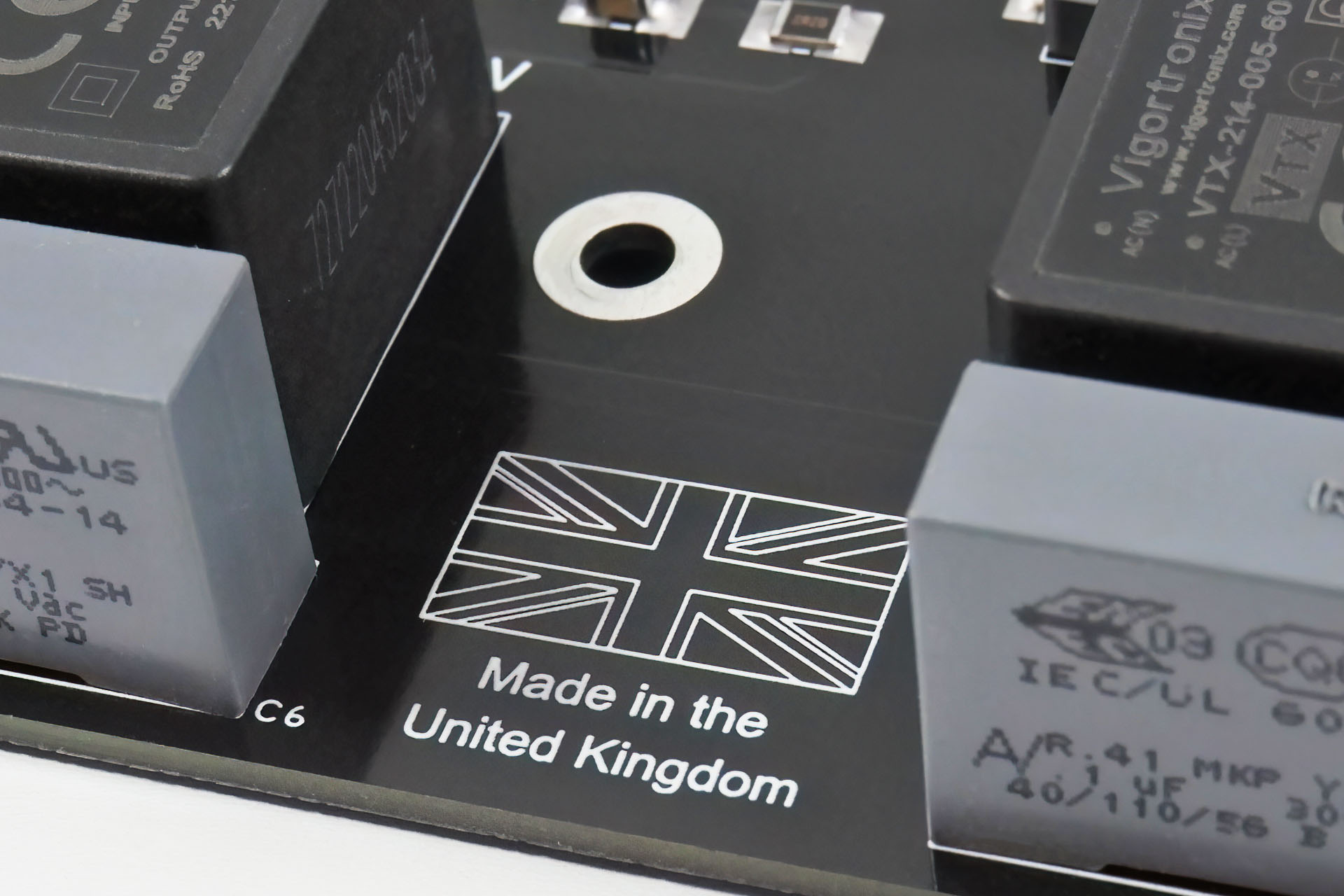
Using local manufacturers isn’t the cheapest option but the above points are important to me. I hope that they’re important to you too.

